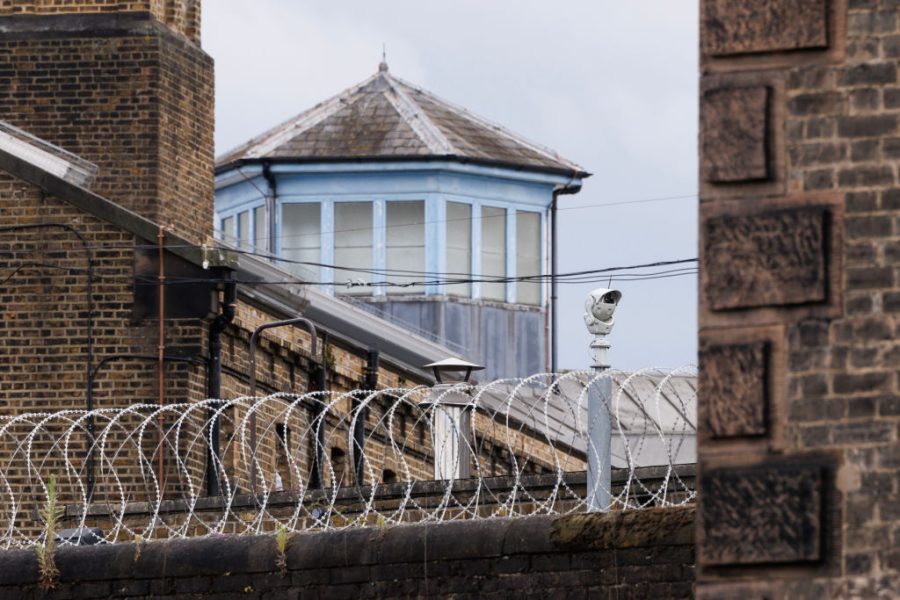Charlie Taylor, HM Chief Inspector of Prisons, has published his first annual report since Labour took office. It will make grim, embarrassing reading for the government. The report shows that despite a year of efforts to control drugs, violence and crime in prison, our jails have become even worse under Labour. The report says they found that ‘in many jails, there were seemingly uncontrolled levels of criminality that hard-pressed and often inexperienced staff were unable to contain’. Even in open jails like HMP Kirkham, whose former governor was recently jailed for a relationship with an inmate, ‘drugs had become a major problem with inspectors regularly smelling cannabis as they walked around’.
This is a failure of leadership. Not just amongst many prison governors, but at a higher level
Drugs are so widespread that 39 per cent of inmates said it’s easy to obtain them (rising from 32 per cent last year) and inspectors regularly visited ‘prisons where the rate of positive random drug tests had reached more than 30 per cent. Meanwhile, some jails, such as HMP Hindley, recorded much higher levels, with ‘a staggering 59 per cent’ of prisoners testing positive for banned substances. The highest last year was 53 per cent. The report says that as a result of ‘this drug ingress, it is unsurprising that national rates of violence increased last year, with assaults on staff 13 per cent higher, while those between prisoners had risen by 10 per cent’.
Taylor is clear about the cause. It is organised crime which is ‘destabilising prisons across England and Wales’. The report says that ‘organised criminal activity’ drives the ‘drug economy with an alarming increase in the use of drones at many jails to deliver illicit items into prisons’, and identifies that a ‘lack of investment in technology and staff training made it hard for some jails to detect and deter the ingress of illicit items.’ At some jails, things are even worse, with ‘weaknesses in physical security and delays in repair work’. At Wandsworth, one of the worst jails in the country, ‘leaders struggled to enforce basic security procedures’.
There are even greater risks than the drug economy destabilising prisons and causing increased violence. We learn that:
Drones were making regular deliveries to Manchester and Long Lartin, which held some of the most dangerous men in the country, including terrorists and organised crime bosses. Physical security such as netting, windows and CCTV was inadequate and at Manchester, inexperienced staff were being manipulated or simply ignored by prisoners. The failure to tackle these security issues seriously compromised safety and represented a threat to national security.
It’s important to understand what a catastrophic failure this is. Netting (to stop drones), secure windows and CCTV are the most basic forms of security which every jail should have. Without them, we have ceded the airspace above these high-security prisons to organised crime.
When I spoke to Mark Fairhurst, National Chair of the Prison Officers Association (POA), he said ‘the chief inspector continues to mirror the concerns that the POA have consistently raised for the past 14 years….severe overcrowding, excessive levels of violence and the ever-increasing threat to national security that organised crime and drones pose. It’s time prison service leaders started to back their staff so we can regain control amidst all the chaos.’
Fairhurst is right. This is a failure of leadership. Not just amongst many prison governors, who oversee these chaotic, insecure establishments, but at a higher level. The leadership of HM Prisons and Probation Services and the Ministry of Justice (MOJ) is comprised of civil servants who have mostly spent their careers within the MOJ and many of whom have risen on a tide of failure.
The MOJ’s statement today insists they’re ‘ending this chaos’ by adding prison places and investing a meagre £40 million in additional security. This is ignoring the real issues. While I do understand that the National Crime Agency (NCA) has launched a new initiative to prevent smuggling contraband into jails via drones, they should be empowered to go further.
Corruption, at staff and management level, is an active cause behind organised crime’s penetration of our prisons. And yet, according to an FOI response, the MOJ’s counter-corruption unit, established in 2019, has overseen a collapse in referrals to the police, from 59 in 2019, to a mere 8 in 2024. Meanwhile, the annual number of incidents of staff corruption has remained relatively flat.
If we are to save our prison system from organised crime, the government needs to act now. Ministers need to recognise that the department’s leadership is not up to the task, and that, as Charlie Taylor says, ‘the prison service must…work in conjunction with the police and security services…this is a threat that needs to be taken seriously at the highest levels of government’. Lord Timpson, the Prisons Minister, appears before the Justice Select Committee today. We will see how seriously he is taking this matter.







Comments